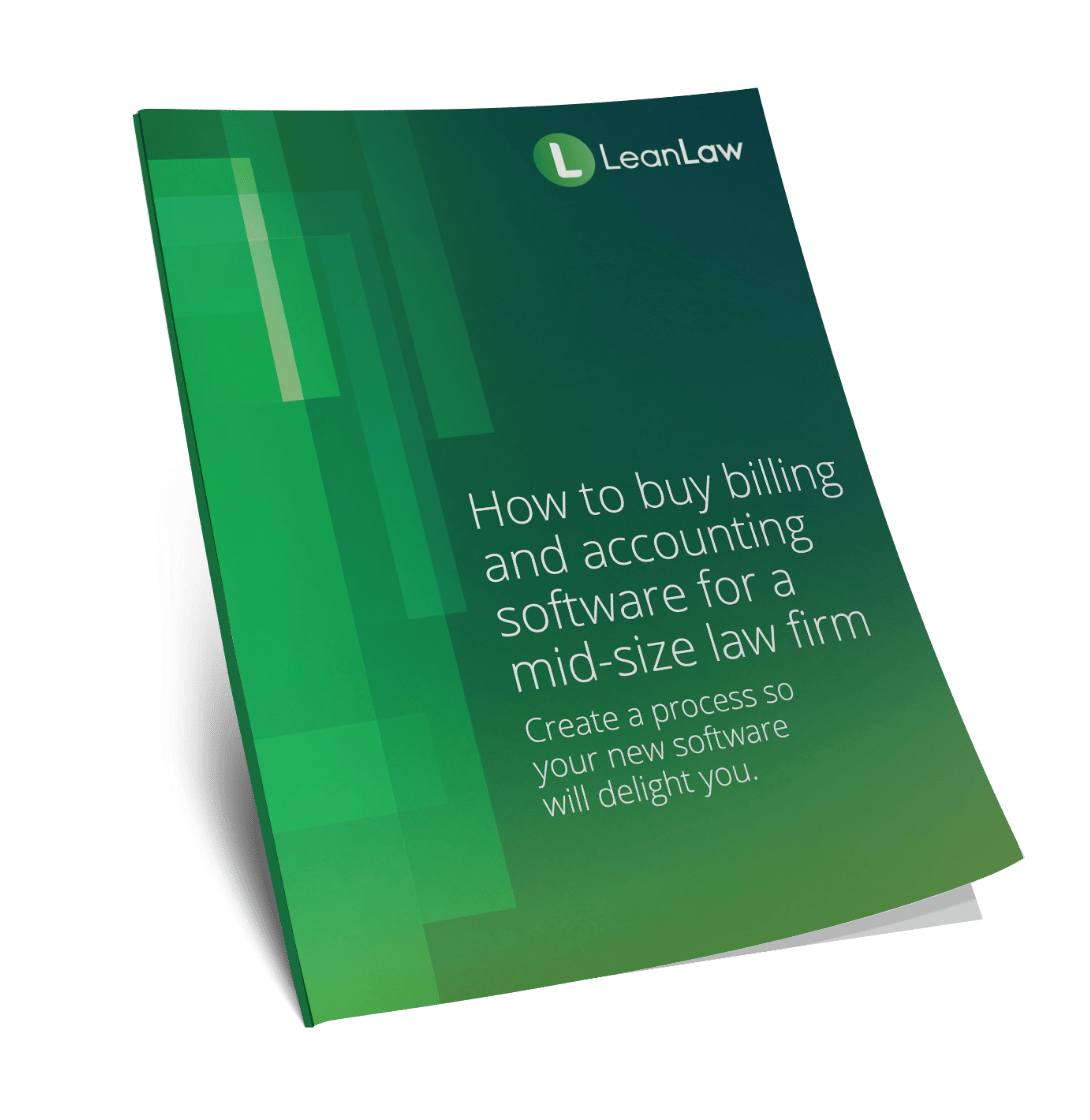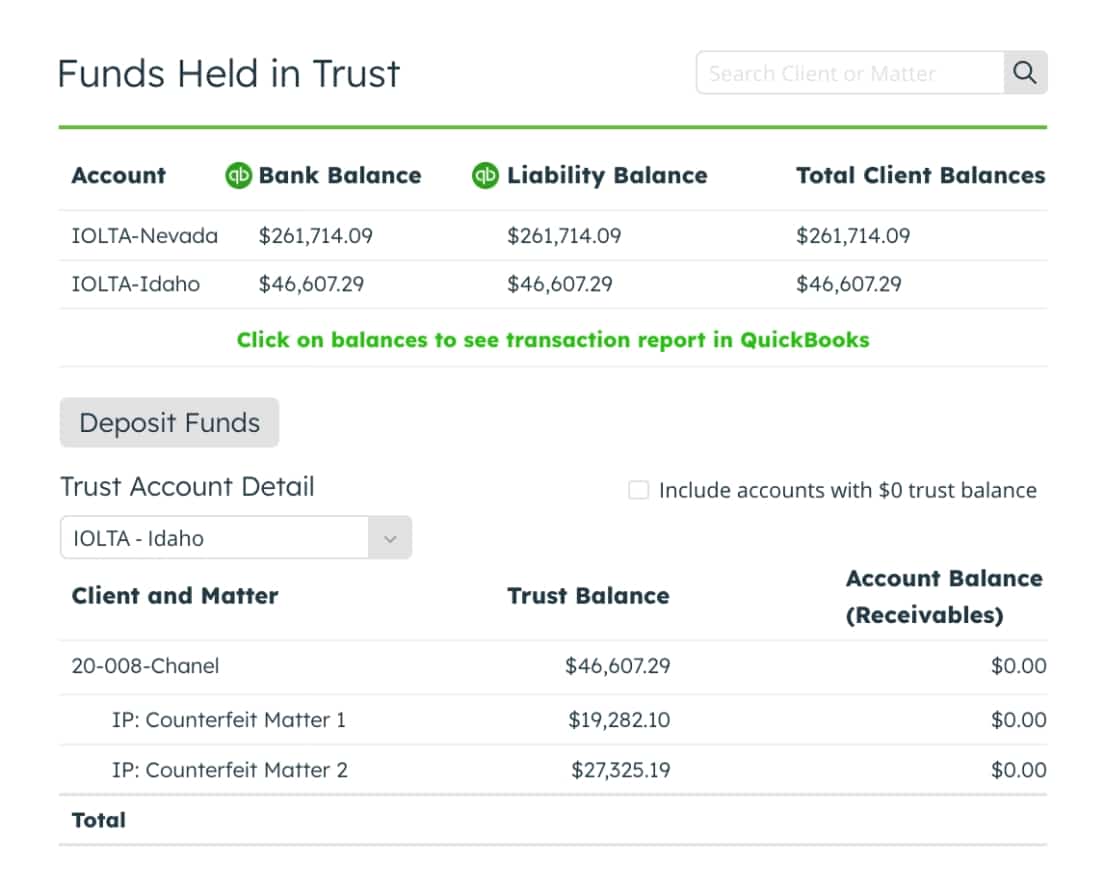
It’s become a name that is synonymous with legal practice management software for law firms everywhere.
But does “synonymous” mean “the best?”
Or – does it mean it’s the right legal practice software for your firm?

Key Takeaways
- Clio has been one of the leading, all-in-one law practice management software systems for years, thanks to its wide range of features that help a law firm operate successfully.
- Though all-in-one law practice management software systems have grown in popularity in the last few decades, many law firms are now beginning to wonder if these types of practice management systems are right for them.
- With the continued advancements in technology and cloud-based applications that can integrate well with one another, more firms are building their tech stacks instead, which greatly increases their flexibility and customizability while also decreasing their costs.
For years, Clio has been one of the highest-ranking and most popular legal practice management software systems used by law firms worldwide.
From US law firms to UK law firms and many in between, Clio has helped attorneys and their teams navigate the intricacies of operating a successful law practice and achieve their goals with ease.
With a wide range of features and functionalities, Clio has empowered law firms to streamline their operations, enhance client communication, and effectively manage their cases.
But at a time when legal practice management software is advancing rapidly and there are more options than ever before, practice management software legal systems of the past may no longer be the right fit for your law firm in the future.
If you are considering making the investment into Clio’s practice management software, it’s a good idea to know the top pros and the biggest cons before making your final decision.
And – if you already have made the investment into Clio’s software, you may be ready to learn if there are other alternatives available in the ever-changing tech market today.
What is Clio Practice Management Software?
Clio Practice Management Software is a leading cloud-based software solution designed specifically for law firms.
It is considered an “all-in-one” practice management software system that has a comprehensive suite of tools and features created to help legal professionals streamline their practice and manage cases efficiently.

From features such as matter management, client management, document management, and reporting capabilities, Clio’s legal software is designed to empower law firms to centralize their operations, and provide a “one-stop shop” for all case-related information, documents, and communications.
Clio’s Creators
Clio was first created in 2008 by Jack Newton and Rian Gauvreau, two entrepreneurs who recognized the need for innovative technology in the legal industry.
They saw that lawyers were facing numerous challenges in managing their practices, such as inefficient processes, lack of collaboration tools, and difficulty in delivering exceptional client service.
Motivated to revolutionize the legal profession, Newton and Gauvreau set out to create a cloud-based practice management software that would empower lawyers and law firms to work more effectively and efficiently.

They wanted to develop a practice management solution that would streamline administrative tasks, improve organization and communication, and enable lawyers to focus on their core legal work.
Clio was launched in 2008 and quickly gained traction in the legal community. It gained popularity for its user-friendly interface, comprehensive features, and commitment to innovation. As the company grew, Clio expanded its offerings to include integrations with other legal software, creating a seamless tech ecosystem for law firms.
The Ups and Downs of All-in-One Legal Practice Management Systems
After the invention of Clio practice management software, other software vendors quickly began following suit.
The success and widespread adoption of Clio’s all-in-one practice management systems – which had been created specifically for lawyers and law firms – showcased the immense potential of this type of legal software.

Step-By-Step Process for Attorneys & Law Firmsto Buy Law Firm Software
Understand who needs what and prioritize features as you investigate new software. Download Buyers Guide eBookLaw firms recognized the benefits of having a comprehensive software solution that could handle multiple aspects of their practice in one platform, streamlining their operations and improving efficiency.
But it soon became apparent that all-in-one practice management systems weren’t without their issues.
While these types of legal management software systems offered a range of functionalities within a single platform, some law firms found that the extensive features could be overwhelming as well as complex to navigate.
Learning and mastering the intricacies of the all-in-one software could require significant time and training for both lawyers and staff.

Not only that, but customization options within all-in-one systems could be limited.
Some firms discovered that certain workflows or unique requirements couldn’t be accommodated within the standardized framework of the software. This led to compromises and workarounds that didn’t fully align with their specific needs.
Another challenge with all-in-one practice management systems was the potential for too much dependency on a single software vendor.
If the vendor experienced technical issues or discontinued the software, it could disrupt a law firm’s operations and data management. Some firms felt restricted by the lack of flexibility in migrating their data to a different system if needed.
Alternatives to the All-in-One Legal Management Systems
In response to these challenges, alternative approaches have begun to emerge.
Rather than relying solely on all-in-one solutions, many law firms have started to opt for a tech stack approach, building their own combination of specialized software tools that can integrate seamlessly with each other.
This approach allows firms to select the best software for each specific function, ensuring a tailored fit to their unique needs.
From managing legal documents to trust account management, modern law firms have begun to realize there are many alternatives to the running of their practices…alternatives that can save them tens of thousands of dollars in payments and fees.

Ultimately, the choice between an all-in-one practice management system and a customized tech stack depends on the individual needs and preferences of each law firm.
Both approaches have their advantages and considerations and it’s essential for law firms to carefully evaluate their requirements, assess the available options, and choose a solution that aligns with their goals, workflows, and long-term growth strategies.
Still Interested in Clio? The Pros and Cons of this Law Practice Management Software
If you are still interested in using an all-in-one law practice management software system like Clio, then it’s a good idea to first explore the pros and cons that it can offer your practice.

The Pros of Clio Legal Practice Management Software
Comprehensive Feature Set: Clio offers a wide range of features to support law firms in various areas, including matter management, time tracking, billing and invoicing, document management, and client communication. Its comprehensive feature set makes it a one-stop solution for many law firms’ practice management needs.
User-Friendly Interface: Clio is known for its intuitive and user-friendly interface, making it accessible to both lawyers and support staff. The software is designed to streamline workflows and simplify complex tasks, allowing users to navigate the system efficiently and increase overall productivity.
Cloud-Based Accessibility: Clio operates as a cloud-based software, enabling users to access their practice management data securely from any location with an internet connection. This flexibility ensures that law firms can work remotely, collaborate with team members, and provide seamless client service regardless of their physical location.

Integration Capabilities: Clio offers integrations with a wide range of third-party applications, allowing law firms to connect their practice management software with other essential tools in their tech stack. This integration capability enhances efficiency by enabling data sharing and automating workflows between different software systems.
The Cons of Clio Practice Management Software
Complexity for Small Firms: While Clio offers a comprehensive set of features, some smaller law firms may find the software overly complex for their needs. The extensive functionalities and options can be overwhelming for firms with simpler workflows, potentially leading to a steeper learning curve and the need for more training and support.
Cost Considerations: Clio’s pricing structure is based on a subscription model, which can be a significant investment for smaller law firms, especially those with limited budgets. It’s important for firms to carefully evaluate the cost of the software and consider whether the features and benefits align with their specific requirements.
Customization Limitations: While Clio provides a range of customization options, some law firms may find certain limitations in tailoring the software to their unique workflows and preferences. Customizations may be limited to specific areas or may require advanced technical knowledge, potentially restricting the extent to which firms can align the software with their specific needs.
Schedule a demo
Support and Customer Service: Although Clio offers customer support and resources, some users have reported varying experiences with their support services. Some law firms have encountered challenges in getting timely responses or resolutions to their queries, which can impact their experience with the software.
It’s important for law firms to consider these pros and cons in relation to their specific requirements and evaluate how well Clio aligns with their online legal practice management needs. Conducting thorough research, seeking demonstrations or trials, and gathering feedback from other users can help firms make an informed decision about whether Clio is the right choice for their practice.
How is LeanLaw Legal Billing Software an Alternative to Clio?

LeanLaw Legal Billing Software offers an alternative solution to law firms seeking a streamlined and focused approach to legal billing.
While Clio provides a comprehensive practice management software with a wide range of features, LeanLaw focuses specifically on billing and accounting needs, making it a more specialized choice for law firms looking to enhance their billing processes.
- Specialized Billing Focus: LeanLaw Legal Billing Software focuses specifically on billing and accounting needs, providing law firms with a specialized solution that streamlines and automates the billing process.
- Seamless Integration: LeanLaw seamlessly integrates with popular accounting platforms like QuickBooks Online, allowing law firms to leverage the power of both LeanLaw’s billing functionality and the robust accounting capabilities of QuickBooks. This integration ensures accurate and synchronized data between billing and accounting systems.
- User-Friendly Interface: LeanLaw offers a user-friendly interface that is intuitive and easy to navigate. The software is designed with simplicity in mind, making it accessible to both attorneys and support staff. This user-friendly approach allows for quick adoption and utilization without the need for extensive training.
- Data Security and Compliance: LeanLaw prioritizes data security and compliance. The software implements robust security measures to protect sensitive client and financial information. Additionally, LeanLaw is compliant with legal industry standards and regulations, providing law firms with peace of mind regarding confidentiality and trust accounting rules.
For those looking for something more modern than the traditional all-in-one legal software, LeanLaw Legal Billing Software stands as an alternative to comprehensive practice management systems by providing law firms with a specialized focus on billing and accounting.
Its seamless integration capabilities, user-friendly interface, and commitment to data security and compliance make it an attractive option for law firms looking to optimize their billing processes and enhance overall financial management software.
If you want to learn more about how LeanLaw legal billing software can be the perfect solution to your law firm’s practice management needs, reach out to the experts today!





